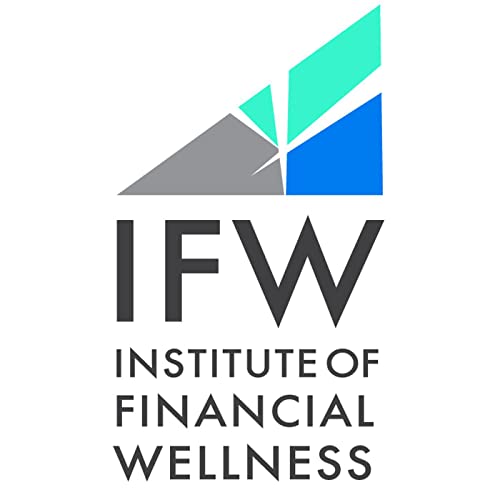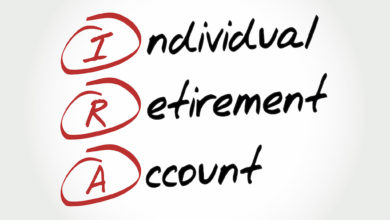
Most people know that you need to save money for retirement. However, how many people know how much money they need to save? Do you?
According to the 2020 Retirement Confidence Survey from EBRI, two-thirds of workers are confident that they are doing a good job saving for retirement. Even though two-thirds of workers feel confident, a majority of workers, 6 in 10, feel stressed about preparing for retirement. Figuring out how much you will need to retire is one of the most important questions you can ask. Unfortunately, it is not an easy one to answer.
That is because every retiree has different lifestyle plans for their retirement. Some want to spend their retirement years taking cruises and traveling the globe. Others want to spend their time taking their grandchildren miniature golfing. One of these options, obviously, costs more than the other.
Once you have determined what kind of lifestyle you would like to live following retirement, you can work toward saving the amount of money you will need.
Again, how do you calculate that figure? You have several options.
Calculating Your Needed Savings
The advice from financial and retirement experts can be frightening to those planning for their retirement. There are even various advisory ‘rules of thumb’ that workers should consider as they contemplate their retirement needs. Some focus on your income, others your anticipated expenses and a third on just reaching savings targets.
The Income Method
This method has a critical assumption: that you will need a certain percentage of your ending income when you retire.
Insurance company StateFarm estimates that retirees will typically need 70 to 80 percent of their pre-retirement annual income to maintain their standard of living during their retirement years. As an example, the insurer says, a couple earning an average of $60,000 a year would need between $42,000 to $48,000 a year during their retirement.
Once you know what you will need on an annual basis, you will then want to subtract what you can expect from Social Security, pension benefits or any other continued streams of income you will receive post-retirement. The remainder is what you will need to withdraw from your nest egg each year.
So if the same couple also receives $15,000 a year in Social Security and pension income, they will need just $27,000 to $33,000 from their nest egg each year.
Most experts say that you should only plan on withdrawing 4 percent of your nest egg each year so that it lasts you through retirement. If we take our example couple and divide their remaining annual need by 4 percent (or 0.04), we can see that they will need between $675,000 and $825,000 in savings before they retire.
The Expenses Method
While the income method takes a top-down approach to determining your retirement needs, the expense method looks at the problem from the bottom up.
To start, just begin adding up all of the expenses you expect to have each month or year in retirement. If you take preemptive steps and start doing things like eliminating credit card debt and mortgage payments, you will begin retirement working from a much smaller expense base.
Once you know your budget requirements, just follow the same steps from the income method. Deduct Social Security, pension, and other income to arrive at your annual number. Then divide the remaining annual amount by 4 percent (or 0.04) to get your nest egg number.
The Savings Method
The savings method does not require you to estimate your retirement needs at all. It just requires you to put aside a set percentage of your annual gross income each year towards your retirement. Most experts suggest that the minimum savings rate is 10%. Others suggest a more robust 20% savings rate.
If you start saving early enough, you might be able to get by saving only 10% annually. If you start later in life, even a 20% savings rate may not be aggressive enough.
One significant benefit of this approach is that the higher the percentage of income that you save, the less you will spend. That will reduce your expense levels through your earnings years and likely mean that you will start retirement with much lower budget requirements.
Points To Consider
In addition to maximizing your savings, there are several other factors to consider as retirement approaches.
First, you have to determine the right age to retire. That will often depend upon your health and your industry, but, in general, the longer you can work the better off financially you will be in retirement.
Don’t retire early, or your monthly Social Security benefits will fall. If you push retirement off, the amount of your benefits will rise for every extra year of work you log. That can prove crucial depending on how long you live in retirement.
Your health is also an essential factor in determining the amount of money you need for a satisfying retirement. Health care is not inexpensive, even when you factor in Medicare. If you are already having health problems before retirement, you can expect to spend a significant amount of out-of-pocket money in healthcare once you are no longer working.
Consider your retirement goals, too. You might want to live a life of luxury after you stop working. That might not be possible if you have not saved enough money. In such a case, you might have to scale back your plans to cruise the world’s oceans and instead be content with taking day trips to state parks. Luxuries are not as necessary as paying the bills and living comfortably.
Finally, take a look at your skills. Just because you have retired from one company does not mean that you cannot still earn money. You can work on a part-time basis as a consultant. You could start a home-based business with your spouse. You might even run a side business with one of your children. Such outside work can keep you connected to your industry while also giving you more hours to spend on relaxing with your grandchildren or spouse.
Retirement planning is far from an easy task today. However, those workers who know how much money they need during their retirement years can at least take the steps necessary to boost the odds that their retirement years will be pleasant ones. Once you know the financial realities of your retirement, there is nothing to stop you from saving the money you need to make your retirement goals come true.
Learn More About IFW’s Retirement Planning Education Services
The IFW provides valuable financial education, resources, and services that help people live their best life.
Please remember, be mindful of the messenger that positions certain products or services as “always” bad or “always” perfect. The fact of the matter is there are no “bad products” or “perfect products”. The right product is the one that aligns with your goals and objectives.
The Institute of Financial Wellness believes when it comes to financial decisions; never say “Never” never say “Always”…It Depends.
The Institute of Financial Wellness is the first and most comprehensive multi-media network for financial education, resources, and services. In fulfilling our mission to help people “Get There” and live their best life, we deliver the following five unique value propositions:
– The industry’s most engaging, informative, and objective financial education content
– Clarity and confidence to help individuals make informed financial decisions
– Access to the IFW Network of Financial Professionals for everything financial
– Full implementation of effective, custom-tailored solutions for everyone’s unique needs
– Ongoing guidance and support to ensure maximum financial success through every stage of life






